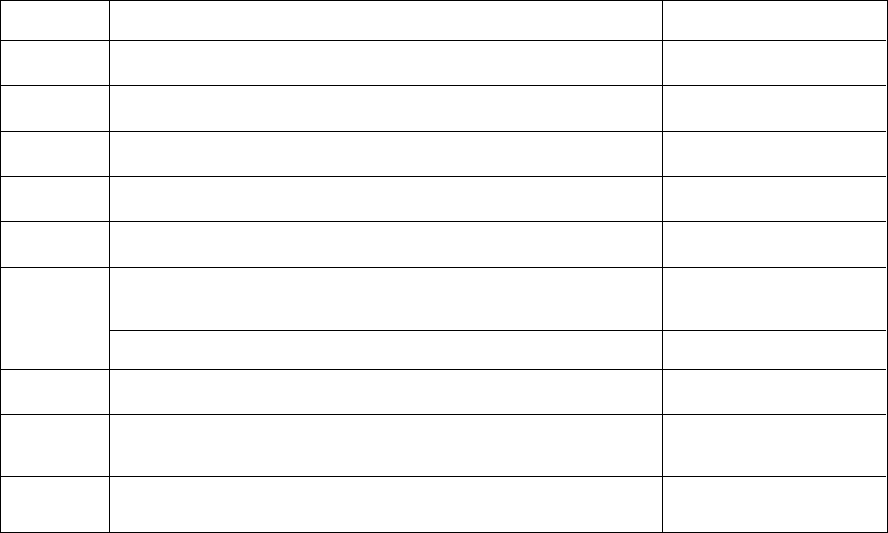
--- 7 ---
5-2. Optional Accessories
The cutting speed of the Model CR 13VA is substantially higher than that of the current model, however, the
conventional HCS blades may be broken in heavy applications such as house demolition, etc. To cope with this
problem, the BI-METAL blades shown in Table 2 are provided. The BI-METAL blades are tough and rarely break
since they are made by electron-beam welding together of two different types of steels. A very hard steel called
"DM05" (JIS: SKH51 or equivalent molybdenum containing high speed tool steel) or "Matrix II" (JIS: SKH59 or
equivalent cobalt containing high speed tool steel) is used at the cutting edges, and a flexible steel for spring
material is used for the blade main body. So these BI-METAL blades are remarkably stronger than the HCS
blades.
(1) HCS blades
The blade numbers of HCS blades in Table 1 are engraved in the vicinity of the mounting position of each blade.
Select appropriate blades by referring to Tables 1 and 3 below.
Table 1: HCS blades
For cutting and roughing lumber
Blade No. Uses Thickness (mm)
For cutting steel pipes less than 105 mm in outer diameter 2.5 --- 6
No. 1
No. 3
No. 96
No. 95
No. 9
No. 8
No. 5
No. 4
No. 2
For cutting steel pipes less than 30 mm in outer diameter
For cutting steel pipes less than 30 mm in outer diameter
For cutting and roughing lumber
For cutting vinyl chloride pipes less than 105 mm in outer
diameter
For cutting and roughing lumber
For cutting steel pipes less than 130 mm in outer diameter
For cutting steel and stainless pipes less than 105 mm in
outer diameter
For cutting steel and stainless pipes less than 30 mm in
outer diameter
2.5 --- 6
50 --- 70
2.5 --- 6
Below 2.5
Below 2.5
Below 3.5
Below 30
Below 105
2.5 --- 15


















